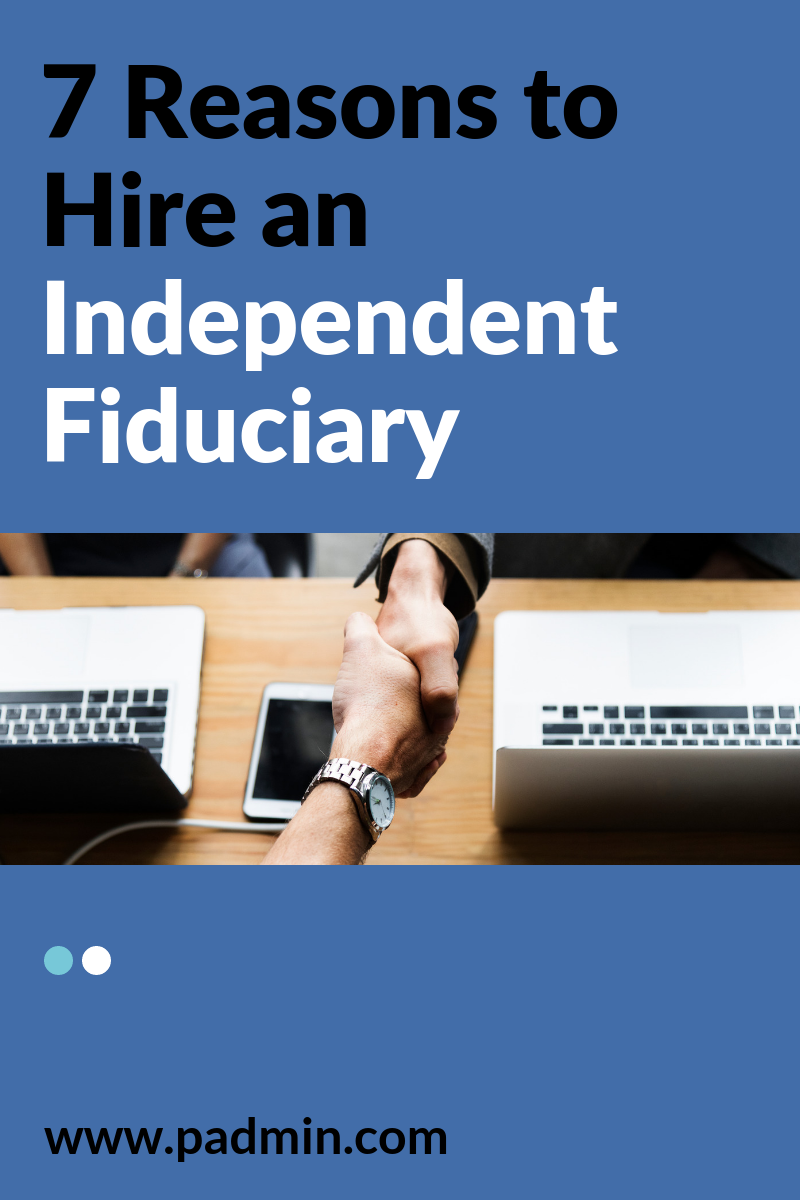Retirement Plan Tips: Why You Hiring an Independent Fiduciary Is Good for Your Business
by Daniel Halle, Regional Director of P&A Group Retirement Plan Services

As a plan sponsor and fiduciary to your company’s retirement plan, you have certain responsibilities to ensure optimal investments, reasonable fees, and informed participants but, unless you are an expert in plan design, investments and administration, you may be swimming upstream in choppy water. As regulations tighten and employees become better informed, an independent advisor, acting as a co-fiduciary on your plan, can help you navigate these waters smoothly. An independent 401(k) advisor brings expertise in creating a best practices retirement plan and monitoring process that helps protect you from liability and loss, while simultaneously promoting positive participant outcomes. In other words, a good advisor helps you avoid common fiduciary mistakes and creates a stronger plan for your employees.
Fiduciary laws have been interpreted based on the prudent man rule: “was the fiduciary’s conduct in accordance with actions that would have been taken by a prudent person faced with the same situation?” Under ERISA (the set of laws governing 401(k) and other retirement plans), the expected standard for fiduciary conduct is raised from that of a prudent man to a prudent expert, which essentially means, “become an expert or hire one.” Therefore, a fiduciary must be familiar not only with the rules and laws under which they are being held accountable, they also must set up a process by which they monitor themselves, or the experts they hire, in the areas of plan design, investments, and administration.
Also, not all retirement plan representatives are created equal. Retirement plan investment platforms can be sold by brokers and/or advisors. However, there is a big difference between the two. Brokers are held to the Suitability Standard. Under the Suitability Standard, the broker is only tasked with ensuring the investment or product is suitable for your retirement plan but not necessarily in the plan participant’s best interest. An Advisor, on the other hand, is held to the Fiduciary Standard and is tasked with ensuring the investment or product is in the best interest of plan participant. Understanding the difference and which one you have is important to know. How can you tell if your advisor is a fiduciary to your plan? If an advisor is serving as a fiduciary to your plan, it must be in writing in the form of a fiduciary agreement or contract. If you do not have this, your representative is probably not a fiduciary to your plan.

A good independent retirement plan advisor brings key elements into play that can save you money, backstop your liability and create a stronger plan for your employees. These include:
Focused experience in retirement plan consulting.
When you are looking for an advisor, finding one that specializes in retirement planning over other kinds of financial planning means the advisor will be better able to anticipate, understand and relieve pain points related to managing an effective plan.
Independence.
Working with an independent advisor provides assurance that funds and service providers receive
objective evaluation, without conflict of interest.
Co-fiduciary status.
A key benefit of working with an independent retirement plan advisor is their ability to act as a co-fiduciary to your plan. Their expertise and guidance using best practices in plan design, investments, and monitoring provides the prudent expert standard of fiduciary conduct important for your peace of mind.
ERISA expertise.
A topnotch retirement plan advisor guides you through ERISA’s changing requirements with a
variety of tools, including checklists, forms, education modules, etc., to ensure prudent skill and care.
In-depth knowledge of plan providers.
An independent retirement plan advisor is familiar with plan fees, expenses and revenue sharing from throughout the provider marketplace and is able to benchmark your plan among other service providers to show you exactly how your plan stacks up.
Employee education.
An experienced independent advisor has the knowledge, communication skills, and collateral material necessary to help your employees better understand their investments and asset allocation.
Transparency.
An independent retirement advisor provides in writing full and comprehensible disclosure on all fees received on a direct or indirect basis, including the fee disclosure regulations that took effect in 2012.
The benefits of hiring an independent retirement plan advisor are clear. You want to provide the best retirement plan to your employees and feel confident that you are meeting all of your fiduciary responsibilities, but very likely, you wear many hats. Hiring an independent retirement plan advisor enables you to meet the prudent expert standard, protects you from liability, and promotes the most
positive outcomes for participants.
For more information, please contact Daniel L. Halle, AIF, RPA of P&A Group, a proud member of The Retirement Plan Advisory Group, at (800) 688-2611 ext. 5405 or halled@padmin.com.
